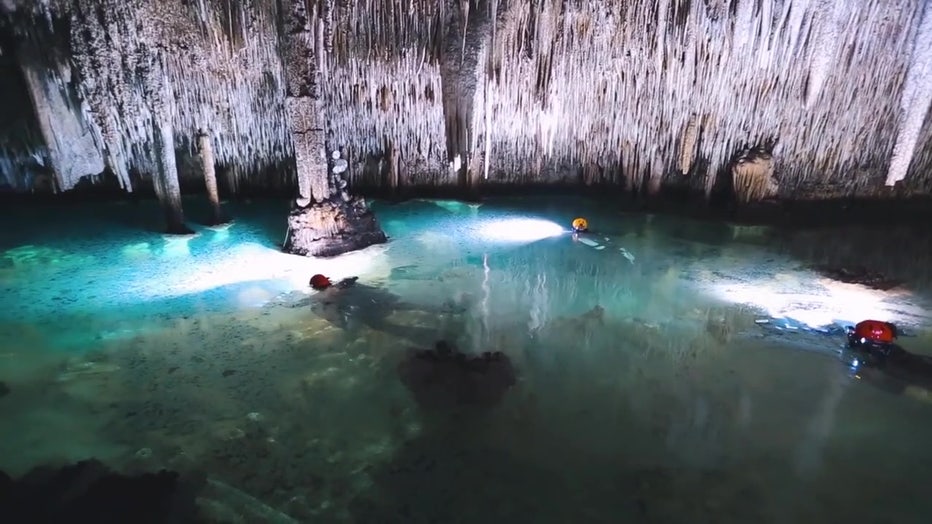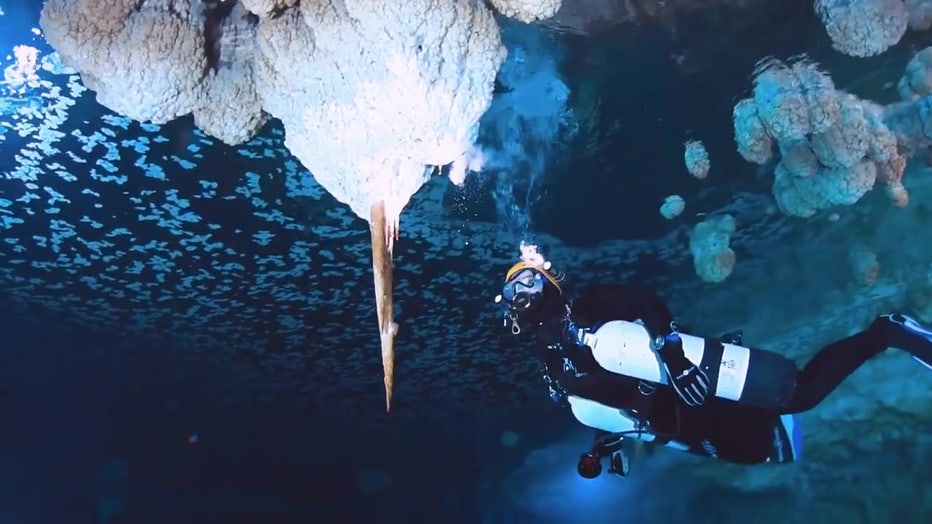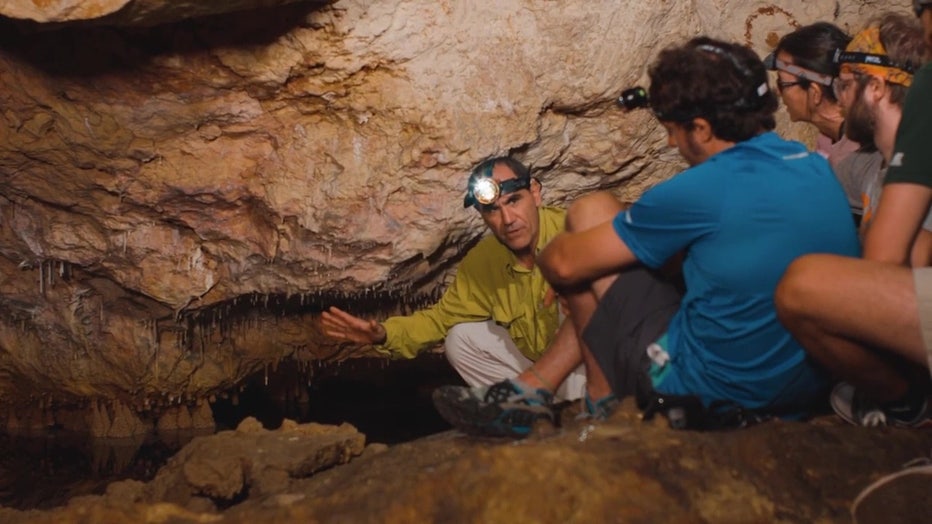USF researchers say Spanish caves are revealing new details on sea level rise
TAMPA, Fla. - Caves in Mallorca, Spain tell a story of unprecedented sea level rise, researchers with the University of South Florida found.
Geosciences Professor Bogdan Onac and USF graduate students were among the international team that studied minerals in the caves dating back 4,000 years. Onac said they found the fastest change in the last 120 years, a time when cities industrialized with machines, factories, and construction.
"Since 1900, we do see 18 centimeters sea level rise," said Onac.
While 18 centimeters sounds small, it is a drastic change when compared to the sea level rising just 20 centimeters during a 400-year time period nearly 3,200 years ago.

"So I would say what we are showing now with the data, our data shows that there is clearly a very an unprecedented sea level rise," said Onac.
MORE: Making Tampa Bay more resilient to sea level rise and flooding: New study takes deeper dive
Onac said ice caps melted over the centuries as the Earth got warmer, and sea level rise is linked to warmer temperatures.

"I guess our message is kind of clear. If we continue to heat up this planet, it's not going to be good for us," he said.
But temperatures could increase more than scientists previously predicted.
"Even if we stop now at present, and we will not use any more coal and anything else, actually sea level will still rise a little bit because the system, it's heated up," Onac said.
READ: Report: Sea level rise to have worst impacts along Gulf of Mexico, East Coast
So he said the study, which was published in July 1 issue of Science Advances, can help scientists plan better.
"They give modelers real information, real data from real world, and so they can use in their models and generate a more accurate forecast for what we should expect in the future," said Onac.

The study can also inform policymakers in coastal areas like Tampa Bay and Florida. He said Florida's communities will feel more impacts going forward.
"[In Florida] year after year, we see more damages, more beach erosion, more constructions that are along the coast that are eaten away by this during these big hurricanes and especially because of the sea surges," said Onac.
In June, Onac said he received a new research grant from the National Science Foundation to continue studying fluctuations in sea level rise at different points of time in Earth’s history. He said he hopes the research will help predict what future sea level rise will be.

